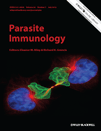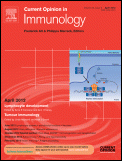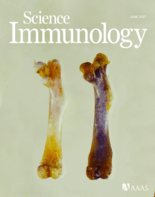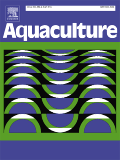
Fish and Shellfish Immunology Reports
metrics 2024
Exploring the immune dynamics of fish and shellfish.
Introduction
Fish and Shellfish Immunology Reports is a distinguished journal published by ELSEVIER, focusing on the vital intersection of immunological responses in aquatic organisms. Established in 2021, it has quickly gained recognition for its contributions to the fields of Aquatic Science and Immunology, achieving a commendable Q2 ranking in Aquatic Science and a Q3 ranking in Immunology as of 2023. This journal is pivotal for researchers, professionals, and students, providing a platform for the dissemination of innovative research findings and critical reviews on fish and shellfish immunology. Based in the United Kingdom, Fish and Shellfish Immunology Reports remains committed to advancing scientific knowledge and collaboration in this niche yet significant area of study. The journal is indexed in Scopus, illustrating its academic credibility with rankings in both the Agricultural and Biological Sciences as well as the Immunology and Microbiology categories. Although currently not an open-access publication, it prides itself on maintaining high standards of peer review and ethical research practices.
Metrics 2024
 0.50
0.50 2.20
2.20 2.20
2.20 7
7Metrics History
Rank 2024
Scopus
IF (Web Of Science)
JCI (Web Of Science)
Quartile History
Similar Journals

IMMUNOLOGY AND CELL BIOLOGY
Fostering Knowledge in Immunology and Cellular MechanismsIMUNOLOGY AND CELL BIOLOGY, published by Wiley, serves as a prominent platform for disseminating cutting-edge research in the fields of immunology and cell biology. With an ISSN of 0818-9641 and an E-ISSN of 1440-1711, this journal has established itself since its inception in 1987, demonstrating a commitment to advancing knowledge in its disciplines through high-quality articles. Renowned for its rigorous peer-review process, it holds a Q2 quartile ranking in both immunology and cell biology categories as of 2023, showing its competitive stature in these fields. IMUNOLOGY AND CELL BIOLOGY is indexed among the elite journals worldwide, with impressive Scopus rankings, including a rank of #75/233 in Immunology and Allergy. The journal’s comprehensive scope ensures that it caters to an audience of researchers, professionals, and students who are dedicated to exploring the intricate mechanisms of immune responses and cellular interactions. Although it does not operate under an open access model, its subscription-based content remains invaluable for those seeking to broaden their understanding of immunology and cell biology. By providing a forum for significant scientific dialogue, IMUNOLOGY AND CELL BIOLOGY continues to shape the future of research in these vital areas.

DEVELOPMENTAL AND COMPARATIVE IMMUNOLOGY
Exploring the Frontiers of Immunological Development.DEVELOPMENTAL AND COMPARATIVE IMMUNOLOGY is a prominent academic journal published by Elsevier Scientific Ltd, dedicated to the exploration of immunological mechanisms across various developmental stages and species. With an ISSN of 0145-305X and an E-ISSN of 1879-0089, this journal caters to a multidisciplinary audience within the fields of Developmental Biology and Immunology. Classified in the Q3 category for both fields in 2023, it reflects a significant standing in its niche, evidenced by its Scopus rankings—with a notable 87th percentile in Agricultural and Biological Sciences and 81st percentile in Immunology and Microbiology. Spanning publications from 1977 to 2024, the journal presents peer-reviewed articles that address cutting-edge research and advancements in immunological responses throughout development. Although currently not an Open Access journal, DEVELOPMENTAL AND COMPARATIVE IMMUNOLOGY remains a vital resource for researchers, professionals, and students seeking to deepen their understanding of comparative immunology.

CELLULAR IMMUNOLOGY
Connecting Scholars in Cellular ImmunologyCELLULAR IMMUNOLOGY is a prestigious journal published by Academic Press Inc. Elsevier Science, dedicated to advancing the field of immunology. Established in 1970 and converging ongoing research up to 2024, this journal has carved out a significant niche within the academic community, boasting a notable Q2 ranking in the Immunology category and holding a respectable 67th percentile ranking within Scopus for its contributions to the disciplines of Immunology and Microbiology. The journal serves as a vital platform for disseminating high-quality research, reviews, and methodologies that elucidate the intricacies of cellular immune responses, thereby benefiting researchers, professionals, and students alike. Although it does not offer open access, the journal's impact is evidenced by its comprehensive coverage of pioneering studies and ongoing developments in the immunological sciences, positioning it as an essential resource for those seeking to deepen their understanding and engage with the latest findings in cellular immunology.

PARASITE IMMUNOLOGY
Advancing the Frontiers of Host-Parasite Research.PARASITE IMMUNOLOGY, published by Wiley, is a leading journal in the field of immunology and parasitology, with an ISSN of 0141-9838 and E-ISSN of 1365-3024. Since its inception in 1979, it has played a pivotal role in advancing our understanding of host-parasite interactions, immunological responses to parasitic infections, and the mechanisms of immunological resistance. The journal is adeptly positioned within the academic community, currently holding a prestigious Q2 ranking in Parasitology and a Q3 ranking in Immunology for 2023, indicating its significant influence and relevance. Its comprehensive scope attracts a diverse readership, contributing to the discourse surrounding novel therapeutic approaches and emerging challenges in parasitic diseases. With a consistent convergence of research until 2024, PARASITE IMMUNOLOGY is an essential resource for researchers, professionals, and students seeking to deepen their knowledge and foster collaboration in these dynamic fields. Although it is not an open-access journal, the insights shared within its pages are invaluable for shaping future research trajectories.

Cellular & Molecular Immunology
Pioneering Insights in Immunology and Infectious DiseasesCellular & Molecular Immunology is a prestigious peer-reviewed journal published by the CHIN SOCIETY IMMUNOLOGY. As a leading journal in the fields of immunology and infectious diseases, it proudly holds a Q1 designation across multiple categories, including Immunology, Allergy, and Medicine (Miscellaneous), reflecting its commitment to excellence and impactful research. With an ISSN of 1672-7681 and an E-ISSN of 2042-0226, the journal has been essential reading since its inception in 2004, continuously gathering insights from cutting-edge studies. It ranks impressively within Scopus, with positions in the 7th, 8th, and 9th percentile in relevant categories, establishing it as a cornerstone for researchers, clinicians, and students alike. The journal offers an extensive range of original research articles, reviews, and clinical studies, ensuring that readers stay at the forefront of immunological discovery. Whether you are interested in basic immunology, infectious diseases, or evolving therapies, Cellular & Molecular Immunology serves as an invaluable resource for advancing your knowledge and engagement in this dynamic field.

CURRENT OPINION IN IMMUNOLOGY
Illuminating Trends in Immunological DiscoveriesCURRENT OPINION IN IMMUNOLOGY is a prestigious journal dedicated to the dynamic field of immunology, published by CURRENT BIOLOGY LTD in the United Kingdom. With an ISSN of 0952-7915 and an E-ISSN of 1879-0372, this journal has been a cornerstone of scholarly communication since its inception in 1988 and continues to disseminate cutting-edge research and reviews aimed at advancing our understanding of immune responses. Holding a remarkable Q1 ranking in both Immunology and Allergy categories for 2023, it ranks impressively within the top percentiles in its field, securing 27th233 in Immunology and Allergy and 31st out of 236 in Immunology and Microbiology. Emphasizing high-impact research, the journal provides researchers, professionals, and students with valuable insights into emerging trends and critical developments. As a vital resource in immunological research, it serves as a platform for disseminating innovative findings, fostering collaboration, and enhancing scholarly exchange in a rapidly evolving scientific landscape.

Science Immunology
Fostering Interdisciplinary Dialogue in ImmunologyScience Immunology, published by the American Association for the Advancement of Science, is a leading journal in the field of immunology, recognized for its significant impact and rigor in advancing our understanding of immune responses and complex diseases. With an impressive impact factor that places it in the Q1 category of both immunology and allergy, as well as miscellaneous medicine, this journal is ranked #7 and #8 in their respective Scopus categories, reflecting its high-quality research output. Since its inception in 2016, Science Immunology has been at the forefront of interdisciplinary immunological research, fostering crucial insights that link immunology with pressing health challenges. The journal is committed to providing open access to its content, ensuring that groundbreaking findings are accessible to a global audience of researchers, professionals, and students. Its anthology not only addresses fundamental immunological mechanisms but also enhances the dialogue on translational applications and therapeutic interventions, solidifying its position as an essential resource within the scientific community.

FISH PHYSIOLOGY AND BIOCHEMISTRY
Advancing Understanding of Fish PhysiologyFISH PHYSIOLOGY AND BIOCHEMISTRY, published by Springer, is a leading journal in the fields of aquatic science, biochemistry, and physiology, with an impressive trajectory since its inception in 1986 and continuing through 2024. Operating from the Netherlands, this journal serves as a vital platform for researchers, professionals, and students alike, showcasing innovative studies that explore the physiological and biochemical aspects of fish, contributing significantly to our understanding of aquatic ecosystems and their inhabitants. With a robust impact factor reflected in its Q1 status in Aquatic Science and notable rankings in other relevant categories, FISH PHYSIOLOGY AND BIOCHEMISTRY maintains a strong scholarly influence, evidenced by its Scopus ranking within the top quartiles of various biological sciences disciplines. While the journal does not currently offer open access options, it remains a cornerstone for advancing knowledge and fostering collaboration within the community dedicated to aquatic biology and related fields.

CLINICAL AND EXPERIMENTAL IMMUNOLOGY
Elevating Immunology: Where Research Meets Real-World ImpactClinical and Experimental Immunology, published by Oxford University Press, is a premier journal that has been a cornerstone in the field of immunology since its inception in 1966. With an ISSN of 0009-9104 and an E-ISSN of 1365-2249, this journal holds a significant position in academic research, currently ranking in the Q2 category for both Immunology and Allergy (2023). Its impactful contributions are reflected in its Scopus rankings, where it stands at Rank #63 out of 233 in Immunology and Allergy, placing it in the 73rd percentile, and Rank #73 out of 236 in Immunology and Microbiology. Researchers, healthcare professionals, and students will find this journal an invaluable resource for cutting-edge studies, reviews, and clinical advancements in the ever-evolving domain of immunology. While the publication does not offer open-access options, it remains a pivotal platform for disseminating knowledge that impacts both clinical practice and experimental research.

AQUACULTURE
Advancing aquatic science for a sustainable future.AQUACULTURE is a premier academic journal dedicated to the field of aquatic science, published by Elsevier. With a robust Impact Factor, the journal is renowned for its significant contributions to aquatic biology and the sustainable development of aquaculture practices. Since its inception in 1972, AQUACULTURE has established itself as an essential resource for researchers and professionals in the industry, regularly ranked in the Q1 category of aquatic science journals and positioned in the 14th percentile of its field according to Scopus rankings. Covering a wide array of topics including fish biology, aquaculture technology, sustainable practices, and environmental impacts, AQUACULTURE aims to disseminate innovative research findings that drive the industry forward. The journal, accessible to a global audience from its base in the Netherlands, continues to foster collaboration, discussion, and application of research to both academic and practical realms within aquaculture. Researchers and students alike will find valuable insights and current trends in this highly respected publication.